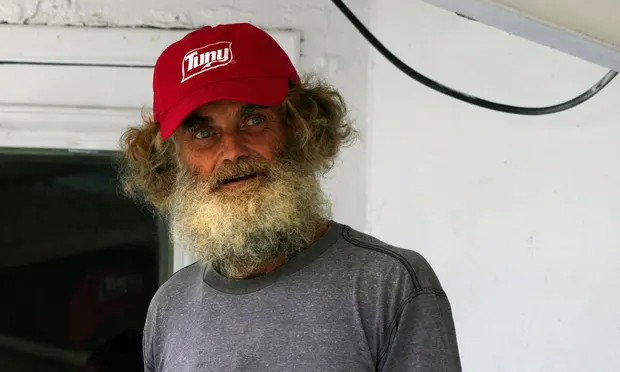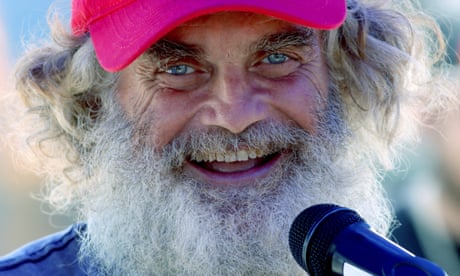The 54-year-old Australian quit his corporate job to pursue a solo sailing dream but a sudden storm left him battling to survive
Timothy Shaddock quit his corporate job and moved to Mexico to pursue his dream of sailing solo across the ocean.
The Australian, 54, bought his 30-foot catamaran two years ago in the Mexican Pacific resort of Puerto Vallarta. He needed a place to live and he liked the isolation.
“Of course, living on a boat and sailing on a boat is two different things and that was more of a challenge,” Shaddock said on Wednesday after stepping on to land for the first time in months.
As his training ground, Shaddock chose the Sea of Cortez, a narrow finger of water between the Baja California peninsula and the Mexican mainland.
“The only preparation that you can really do is take the boat out to sea and test the boat at sea,” Shaddock said. He would take short journeys, noting what was working on the boat and what wasn’t, but was conscious that, in late April, hurricane season was coming.
“It was either now or I could not really wait one more year,” he said.
“Once you hit the Pacific, the wind and the current is behind you, it’s one-way, you cannot come back.”
He sailed out of the Sea of Cortez and into the Pacific under a full moon. He thinks it was early May, though the dates are vague in his memory.
“It was very good sailing on that full moon,” he said. “The boat was moving fast. It was a clear night. The winds were strong. I was amazed how the boat moved and it felt so good to sail under that moon and perfect direction. It was so easy to make the decision. I wanted to keep sailing.”
When he arrived in Mexico at the beginning of the pandemic in June 2020, he initially lived in San Miguel de Allende, a colonial town in central Mexico popular with foreign tourists.
There, he met Bella, a black and brown stray dog, who became his constant companion for the next three years, despite occasional efforts to find her a suitable home on land.
Shaddock and Bella were a few weeks into their journey when a storm changed everything in an instant.
“The current changes direction. So if you’re drifting you’re suddenly drifting in a circle. And the wind, it’s changing all the time,” Shaddock said. “The waves are moving in many directions and it’s hypnotising. You sort of suddenly feel like you’re in a whirlpool.”
He lost his sail, all of his electronics, including navigational equipment, and his ability to cook food.
Days became a battle against fatigue: fixing things on the boat, fishing, capturing rainwater. He was overwhelmed by the fear that the next day he might be too exhausted, too weak.
Shaddock found comfort in meditation, swimming in the ocean and writing in a journal. Keeping Bella fed and content gave him added purpose. The two subsisted on raw fish and rainwater.
Shaddock thought he probably would die at sea until he heard a helicopter on 12 July. Its pilot, Andrés Zamorano, was the first person Shaddock had seen in months. Zamorano had taken off from the tuna boat María Delia in search of schools of the fish.
They were 2,000km from the nearest land.
Zamorano believes the moral obligation Shaddock felt to keep Bella alive helped them both survive.
Aboard the María Delia, Shaddock and Bella were showered with attention and first aid.
Stepping on to land on Tuesday for the first time in months was both incredibly welcome and a bit uncomfortable for someone who had been so alone.
Everyone asked about Bella and then felt deflated when told Shaddock had decided to give her to an animal lover on the crew of the María Delia.
“The Australian embassy really made that decision for me,” Shaddock said later, noting that Australia has very strict quarantine laws.
Shaddock plans to return soon to Australia to see his parents, sister and his daughter. He still loves the sea, but said he was not sure how soon he would again go out of sight of land.
“My daughter, she might come here, get me and bring me home,” he said. “Maybe. She wants to come.”
Source: The Guardian





Recent Comments